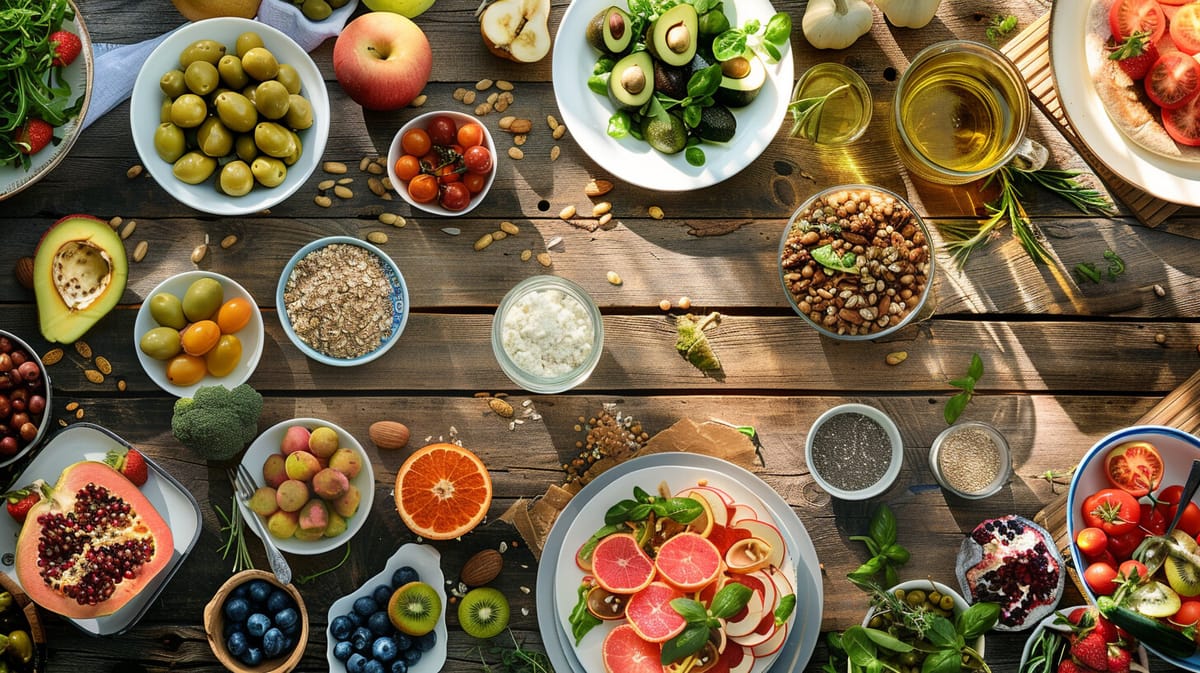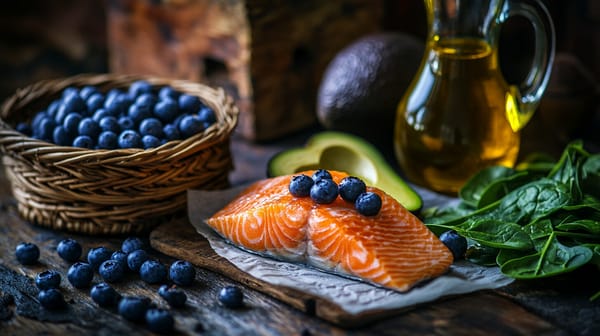10 Simple Nutrition Habits for Effective Weight Loss

Introduction
Losing weight and improving your overall health doesn't have to involve drastic diets or extreme overhauls to your lifestyle. By incorporating a few key nutrition habits into your daily routine, you can set yourself up for long-term success. These 10 simple tips will help you make lasting positive changes to your eating patterns for better health and sustainable weight loss.
Focus on Whole Foods
One of the most impactful changes you can make is to prioritize whole, minimally processed foods in your diet. Build your meals around lean proteins like chicken, fish, beans and tofu; fresh fruits and vegetables; and fiber-rich whole grains like quinoa, brown rice and oats. Limit your intake of packaged snacks, sugary drinks, and foods with long ingredient lists. A diet rich in nutrients and low in empty calories will naturally promote weight loss.
Practice Portion Control
Even nutritious foods can lead to weight gain if eaten in excessive amounts. Learn to recognize appropriate portion sizes for different food groups. For example, a serving of protein should be about the size of your palm, while a serving of carbohydrates is about the size of your closed fist. Eating slowly and mindfully can also help you tune into your hunger and fullness cues to avoid overeating. Try using smaller plates and bowls to effortlessly downsize your portions.
Boost Your Protein Intake
Protein is vital for building lean muscle, keeping you feeling full and satisfied, and revving up your metabolism. Aim to include a source of protein at every meal and snack. Simple options include hardboiled eggs, Greek yogurt, nut butters, and roasted chickpeas. If you struggle to meet your needs through food alone, consider adding a protein powder supplement to smoothies or oatmeal. Just be sure to choose a quality brand with minimal added sugars and fillers.
Cut Back on Added Sugars
Unlike the naturally occurring sugars in fruit, added sugars provide empty calories without any nutritional benefits. Foods high in added sugars also tend to be less filling, so you end up eating more overall. Check nutrition labels and ingredient lists carefully, as sugar can hide under many different names like cane juice, corn syrup and dextrose. Opt for unsweetened versions of staple foods like yogurt, nut milks and sauces. If you crave something sweet, reach for fresh fruit or a small square of dark chocolate instead of cake, cookies or candy.
Stay Hydrated with Water
Many people mistake thirst for hunger, leading to unnecessary snacking. Aim to drink at least 64 ounces (about 8 cups) of water per day, and more if you're active or live in a hot climate. Keep a reusable water bottle with you and sip throughout the day. If plain water bores you, try infusing it with fruit slices, fresh mint or a splash of juice. Unsweetened tea and sparkling water also count towards your daily fluid intake while adding variety.
Plan and Prep Your Meals
Having healthy meals and snacks ready to go makes it much easier to stick to your nutrition goals, especially when you're busy or stressed. Set aside time each week to grocery shop and prepare some food in advance. Chop vegetables, cook big batches of grains and proteins, and portion out snacks like nuts and fruit. When you have nourishing options on hand, you'll be less likely to resort to less wholesome convenience foods.
Don't Fear Healthy Fats
Low-fat diets were once popular for weight loss, but we now know that healthy fats are essential for overall health. Heart-healthy monounsaturated and polyunsaturated fats help absorb nutrients, promote brain health, and keep you feeling energized. Include small servings of foods like avocados, olive oil, fatty fish, nuts and seeds each day. Just watch your portion sizes, as fats are calorie-dense.
Add More Fruits and Veggies
Most of us don't eat nearly enough produce. Fruits and vegetables are packed with fiber, vitamins, minerals and health-protective plant compounds, yet low in calories. Start your day with fresh fruit like berries, citrus or melon. At lunch and dinner, fill at least half your plate with non-starchy vegetables like leafy greens, broccoli and bell peppers in a variety of colors. Snack on crunchy veggies and hummus or fruit with yogurt. The fiber and water content of produce adds volume to keep you full with fewer calories.
Find Alternative Stress Management Techniques
Eating is often an emotional response to stress or anxiety, rather than true physical hunger. Pay attention to any triggers leading you to eat when you're not actually hungry, like boredom or a difficult day at work. Find healthier ways to cope with and reduce stress, whether it's taking a walk, practicing yoga or meditation, reading a good book or calling a friend. Removing emotional eating triggers makes it much easier to stick to a balanced diet.
Track Your Progress
Tracking your food intake, weight, body measurements and exercise habits provides valuable insights and motivation. Consider using an app like MyFitnessPal to log your nutrition. Take photos of your meals and snacks to identify areas for improvement. Record non-scale victories like having more energy, clearer skin or clothes fitting better. Celebrate milestones like losing 5 pounds or running your first 5K race. Tracking your progress helps you recognize how far you've come, stay accountable and course-correct as needed to reach your goals.
Conclusion
Improving your nutrition habits doesn't have to feel overwhelming or restrictive. Start with these 10 simple but powerful strategies. Slowly incorporate them into your routine one at a time so they become lifelong habits rather than short-lived resolutions. As these habits become second nature, you'll see the results not just in weight loss but also in higher energy levels, better digestion, improved sleep, sharper mental focus and a greater sense of overall well-being. Approach healthy eating as an act of self-care rather than self-punishment, and you'll be well on your way to reaching a healthy weight while loving the food you eat.




